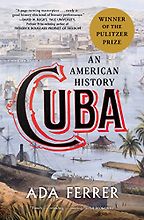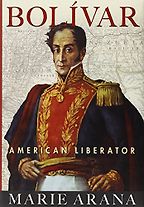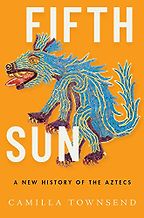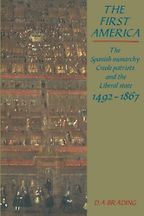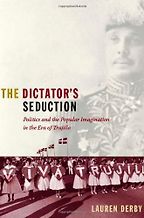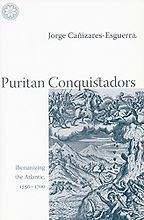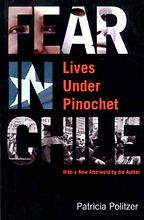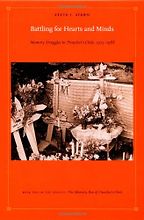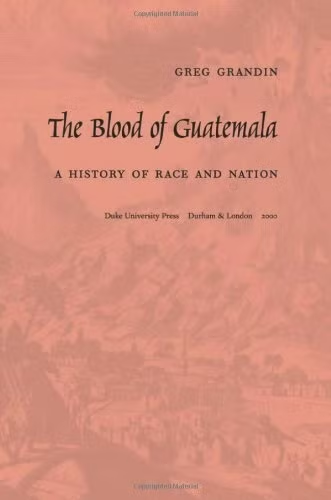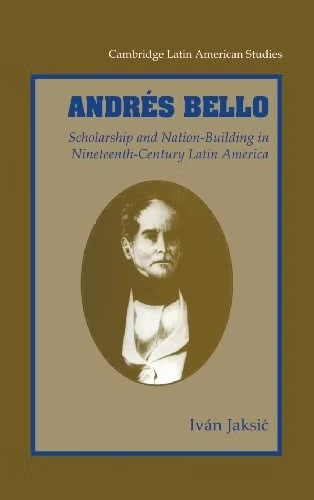Latin American History
Last updated: January 21, 2025
“In the US, the 2022 Pulitzer Prize for History went to two books. One is Cuba: An American History by Ada Ferrer, which covers 500 years of history, from just before the arrival of Christopher Columbus to the death of Fidel Castro in 2016. The book opens with Ferrer’s own departure from Cuba to New York as a baby.” Read more...
Award Winning Nonfiction Books of 2022
Sophie Roell, Journalist
The Motorcycle Diaries: Notes on a Latin American Journey
by Che Guevara
Che Guevara is such an icon that it's interesting reading him in the first person, describing his road trip across Latin America with a friend as a student in the early 1950s. He's quite funny. He wrote quite a few other, more serious books—about the Cuban Revolution and also fighting in Bolivia, where he was caught and executed. They're all written in note form, so quite readable although a bit of extra reading may be needed for context.
“He truly was this larger-than-life character. He had 37 mistresses—that we know about. There are things in the book that are like, ‘Okay, they’ve got to make this into a movie.’ One of his mistresses defended him with a sword, while he jumped out a window, before he could be killed. It’s also a Shakespearean tragedy, because he was the most famous and admired man of his age and, when he dies, he’s a pauper in exile, reviled and mired in scandal.” Read more...
Best Books for History Reading Groups
Donna McBride, Historian
Fifth Sun: A New History of the Aztecs
by Camilla Townsend
***Winner of the 2020 Cundill History Prize***
“It’s a ground-breaking book in many ways. Camilla Townsend has been doing work on this for a while at what you might call a high scholarly level, and this is an attempt to take that learning to a slightly wider audience…She has access to these documents called xiuhpohualli, which she translates as ‘yearly accounts’, but they are the Nahuatl people’s annals and, using these, she concentrates on a period of roughly about a hundred years either side of Hernan Cortes’s arrival. She is very concerned not to portray the Mexica, the Aztecs, as these people who indulge in human sacrifice and all the other things we know from Mel Gibson’s Apocalypto. But it does go on and the human sacrifice actually increases with time.” Read more...
The Best History Books of 2020
Paul Lay, Historian
“It is a lifetime’s work. It is a pretty much comprehensive study of political thought, cultural thought and particularly theological thought in the Americas, with a concentration on Mexico and Peru. Brading is very unusual in that he has worked on both of the old indigenous Empire regions. He moves though the entire colonial period and indeed into the early Republican era: 1492-1867. If there was one single book about all the ideas of Spanish America throughout very nearly 400 years, this would be the one that I would recommend.” Read more...
The best books on Latin American History
James Dunkerley, Political Scientist
“The Dominican Republic is one of the less well-known countries and, of course, it is overshadowed very often as the second part of Hispaniola by Haiti, which has lived a truly tragic life, even today. On the other hand, the Dominican Republic has always attracted fiction writers. People like Miguel Angel Asturias, Garcia Marquez and, perhaps best known, this year’s Nobel Laureate Mario Vargas Llosa, whose Feast of the Goat is exactly about the same subject. This is the dictatorship of Generalissimo Trujillo. What Lauren Derby does is not the obvious thing of tracing the viciousness, the repression and the one-sidedness of a 30-year dictatorship. What she does much more is a cultural history of what she calls ‘vernacular politics’. She looks at how that regime used modes of civil society to gain compliance. And sometimes it is a compliance which looks like consensus but is in fact coerced. She looks at how Trujillo used custom and practice at the street level, like gaining intelligence through gossip. She shows how the State sought to make people somewhat complicit in their own oppression.” Read more...
The best books on Latin American History
James Dunkerley, Political Scientist
“I think it’s a very enterprising history because it challenges the thesis of American exceptionalism – the idea that the Puritan tradition is so singular that it determines North America in contrast to Catholic and Spanish Latin America. What Cañizares does is look very closely at particularly religious texts from the time – which of course are now very much in the news again with all the discussion about Hitchens and Dawkins and so on. And he finds a greater convergence than mainstream belief normally recognises.” Read more...
The best books on Latin American History
James Dunkerley, Political Scientist
“Euclides da Cunha was a military engineer turned journalist who, in the 1890s, covered a rebellion of pro-monarchist settlers in Canudos led by a religious fanatic called Antonio Conselheiro. The army was sent in to crush the rebellion five times and 15,000 people were killed. This book is about the campaign, but it’s also about Brazilian society, about Brazilian-style religious fanaticism.” Read more...
Larry Rohter, Foreign Correspondent
“Patricia actually wrote it in 1985 towards the end of Pinochet’s regime. So it’s a courageous book because to publish books in Chile which might be seen to contain critical material was not an easy decision to make. What she does is look at a whole spectrum of people: from powerful people with money on the right, to the poorest of the poor peasants. Through their stories she reconstructed their lives and beliefs. I found it an extraordinarily moving book. The last chapter deals with the case of José Tohá, one of Allende’s ministers who was starved to death in a military hospital. His widow, because they were friends of the family, goes to Pinochet to try to find out what happened. I was actually moved to tears in this chapter because it is this woman’s attempt to come to terms with the dreadful things that have happened to her husband at the hands of someone they thought of as a friend.” Read more...
The best books on Pinochet and Chilean Politics
Alan Angell, Political Scientist
“This is an extraordinarily moving book. It tells the story of people who, in the most appalling circumstances, tried to defend liberty. Not people who were necessarily very much on the left, but just ordinary decent democrats…He focuses on key episodes, like the assassination attempt on Pinochet in 1986 and what that meant. There is a great deal on the church. Although the church in Chile is a very conservative institution now, it had a strong line on human rights. For the first ten years of the dictatorship, before the economic crisis of 1982/3, the only real internal opposition to the abuses of the regime came from the Catholic Church.” Read more...
The best books on Pinochet and Chilean Politics
Alan Angell, Political Scientist
“Guatemala is often overlooked. It is part of the Aztec-Maya nexus and the site of a very bitter civil war from the 1970s to the 1990s. It has this very significant indigenous population which is split into different peoples. This is a book which is both quite radical in its vision and iconoclastic…He develops a picture which is very nuanced and shows also, as Derby does, that you don’t need to shoot people down or drive them with whips in order to make them do things they don’t want to do. And very often you don’t need to do that across racial lines. You can get people from a different racial group to do it for you. A lot of people steer clear of Guatemala because it is both so stark and so complicated, but if I were to recommend one book it would be this one because Grandin knows the country exceptionally well, writes very clearly and he understands he is writing something that is a little counter-intuitive – in that much power was socially determined outside military conflict – so he has to take time to take the reader with him and he does that admirably well.” Read more...
The best books on Latin American History
James Dunkerley, Political Scientist
“Bello was born in Caracas in the 1780s. He was Simon Bolivar’s tutor. He then came to London in 1810 as part of a diplomatic mission to try and persuade the British to support the Venezuelans in their recent struggle with Spain for independence or at least self-government. He then stayed for nearly 20 years in London, living in Euston in conditions of some penury, working with James Mill and Jeremy Bentham…This excellent biography shows – not unlike the Cañizares volume – how ideas were shared to an appreciable degree across North and South Atlantic worlds. Bello’s inaugural speech in Santiago, for instance, is very similar in approach to that of Cardinal Newman’s ‘Idea of a University’.” Read more...
The best books on Latin American History
James Dunkerley, Political Scientist
The best books on Latin American History, recommended by James Dunkerley
Professor James Dunkerley at Queen Mary’s, University of London, says that ‘Latin America’ is a term that only dates from the 1830s. He chooses five books that illuminate the cultural and political history of the continent.
